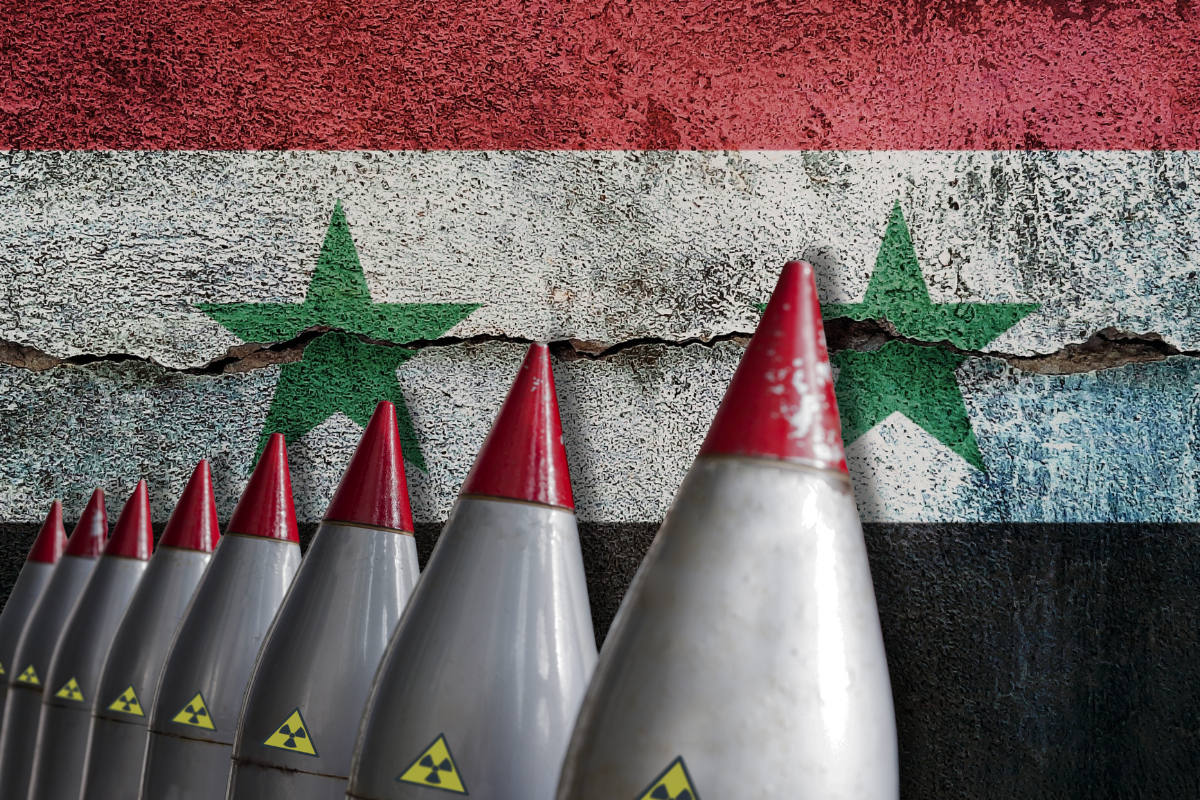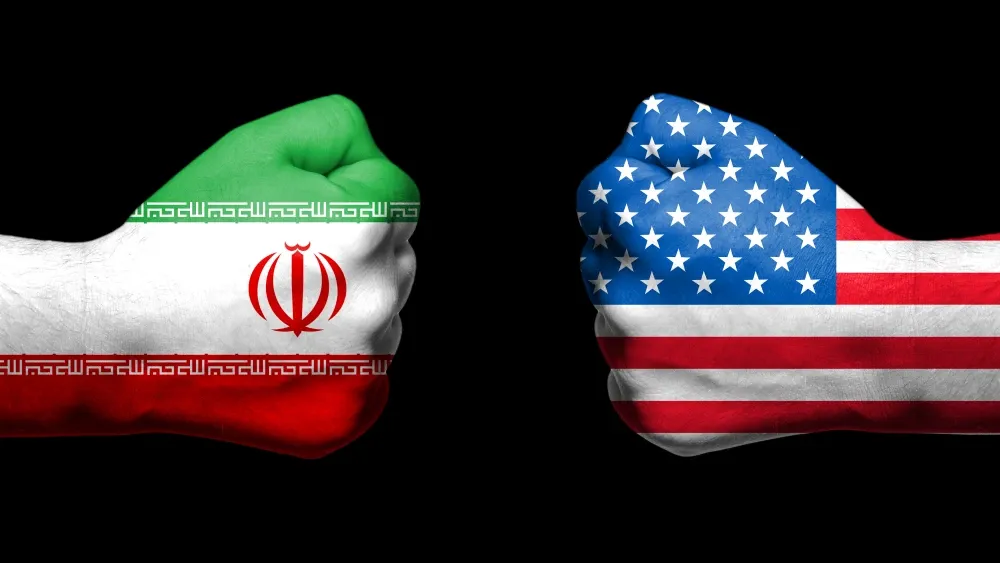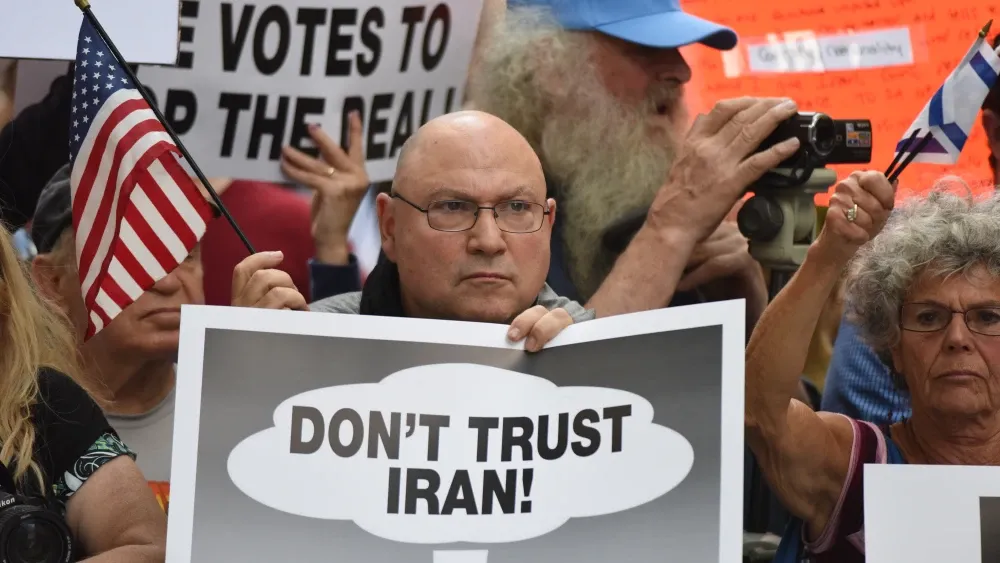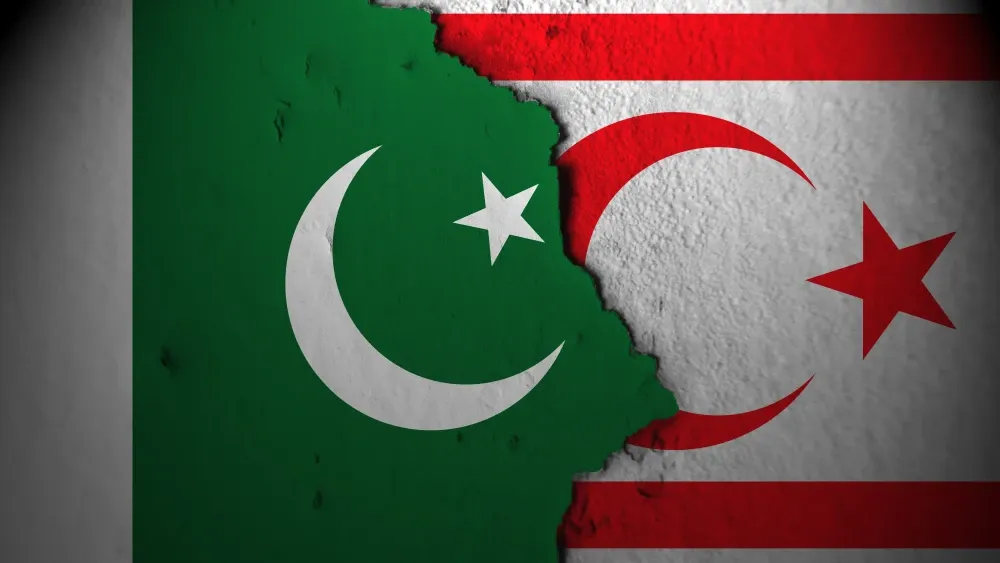| ||
 | ||
| Syria's Chemical Weapons; Dealing with Iran; Making Turkey Pay; A University's Victory Over Demonstrators By Winfield Myers ● May 06, 2025 Smart Brevity® count: 6 mins...1541 words In the latest of MEF’s series of in-depth reports, Gregg Roman details Syria’s heretofore secret chemical weapons program, revealed to MEF by clandestine intelligence gathering over a six-year period. The information is based on firsthand accounts from regime insiders, intercepted communications, and documentary evidence collected at great personal risk by MEF’s sources. Mardo Soghom argues that in its negotiations with the U.S., Iran may push its luck too far if it assumes that President Trump wants a deal at all costs. Then again, warns Loqman Radpey, Iran is not remotely interested in real compromise, and deterrence does not work on a fanatically religious regime. Ahnaf Kalam analyses the tightening grip of Bangladeshi Islamists following the ouster of its reformist prime minister, while Michael Rubin says that any country that recognizes Turkey’s occupation of Cyprus should be treated in kind by having their own minorities recognized by the West—and let the chips fall where they may. Finally, A.J. Caschetta reports that the Rochester Institute of Technology, where he teaches, stood up to the pro-Hamas mobs last fall and hasn’t allowed them to return. Still, he warns, the administration must be ever-vigilant. | ||
Syria's Clandestine Chemical Arsenal: The Complete DossierThe Middle East Forum unveils the intricate system behind Syria’s chemical weapons program, which persisted until the Assad regime's fall in December 2024. Why it matters: The Assad regime's network managed to develop, produce, and deploy chemical and biological weapons while evading international scrutiny.
The big picture: The investigation reveals a program more sophisticated and extensive than previously understood by the international community.
Between the lines: The program's survival hinged on systematic deception orchestrated at the Presidential Palace level, with direct oversight and strategic management.
Go deeper: For a comprehensive understanding, explore the full report detailing the organizational structure, key personnel, and historical origins of the program.
To read the full report, click here. | ||
Trump Seeks a Deal, but Iran May Be Pushing Too FarIn Tehran, there's a perception that President Trump is steering away from conflict, aiming instead for a diplomatic legacy. Why it matters:
The big picture:
Between the lines:
Go deeper: Khamenei is gambling with stakes far higher than even he can afford. To read the full article, click here. | ||
Is a Reliable Nuke Deal with Iran Even Possible?The nuclear talks between the U.S. and Iran highlight the stark reality that Iran's regime is entrenched in its anti-Western ideology. Why it matters: Iran’s leaders see their survival as dependent on resisting the liberal international order. To them, the Islamic Republic is not just a government but also a mission.
The big picture: The U.S. faces a regime committed to its ideological underpinnings so that it cannot be swayed by negotiations or international pressure.
Go deeper: U.S. policymakers must confront the truth: Iran's compliance is temporary and tactical, with deception as a survival strategy.
To read the full article, click here. | ||
Statecraft Reimagined 2025 - Registration Deadline May 11!The last day to register for MEF’s 2025 Statecraft Reimagined policy conference is Sunday, May 11. Register now to reserve your spot! Statecraft Reimagined will gather leading experts and policymakers to discuss the most urgent and complex issues shaping the future of the Middle East. This extraordinary event is poised to be the premier Middle East policy gathering in D.C. this year, offering unparalleled insights, networking, and strategic guidance. We also invite you to participate in ‘The Strait,’ an immersive and interactive war game simulation on May 22. Navigate a crisis in the Strait of Hormuz, facing cyber threats and diplomatic challenges. Sharpen your strategic skills, network with experts, and shape the outcome. To register for the conference, click here. | ||
Ahnaf Kalam on Islamists’ Tightening Grip on BangladeshBangladesh is grappling with significant political upheaval, reminiscent of Iran's 1979 revolution, as Islamists exploit the opportunity to gain power created by the overthrow of former Prime Minister Sheikh Hasina. Why it matters: The rise of Islamism in Bangladesh threatens regional stability and Western interests.
The big picture: Muhammad Yunus, Bangladesh's interim leader, has lifted the ban on the terrorist group Jamaat-e-Islami and reversed crackdowns on other Islamist groups, thereby empowering extremist narratives.
Go deeper: The Trump administration condemns the violence against Hindus and suggests leveraging trade preferences and IMF loans to pressure Bangladesh into holding elections.
To read the full summary and watch the podcast, click here. | ||
If Pakistan Is Recognizing Occupied Cyprus, Why Shouldn’t Cyprus Recognize Baluchistan?Cypriot diplomacy punches far above its weight. Foreign Minister Constantinos Kombos receives respect on the global stage, and deservedly so. Why it matters: Turkey's reckless push for getting his Islamist allies Pakistan and Azerbaijan to recognize Turkish-occupied Cyprus as sovereign is a direct threat to regional stability and an affront to international law.
The big picture: Turkey, Azerbaijan, and Pakistan form a new axis of Sunni Islamist terror, backing Turkish-occupied Cyprus in defiance of legal norms, driven by Erdoğan's imperialistic vision.
Next steps: Supporting independence movements like those of the Kurds and Talysh could fracture Ankara, Baku, and Islamabad, leading to potential partitions and a reshaping of geopolitical landscapes.
To read the full article, click here. | ||
How One University Dealt With Pro-Hamas ProtestersIn the wake of pro-Hamas protests sweeping U.S. campuses, Rochester Institute of Technology (RIT) distinguishes itself by effectively managing and preventing further unrest. Why it matters: Unlike the Ivy League institutions that experienced turmoil at the hands of anti-Israel demonstrations, RIT swiftly shut down protests, preserving its brand and campus environment.
The big picture: The November 13, 2023, protest led by external agitators was contained, preventing further disruptions at RIT.
Go deeper: RIT’s struggle with pro-Hamas demonstrations shows that even when a university does what is right and necessary, it must maintain vigilance against the antisemitism of today’s anti-Israel demonstrators.
To read the full article, click here. | ||
| Thank you for your support and for subscribing to the Dispatch. If you enjoyed it, please forward it to a friend, and please let us know what you thought of this issue. You’ll hear from us again soon. Sincerely, Winfield Myers | ||
| Was this edition useful? Your email will be recorded and shared with the sender | ||
| Powered by | ||
| ||









